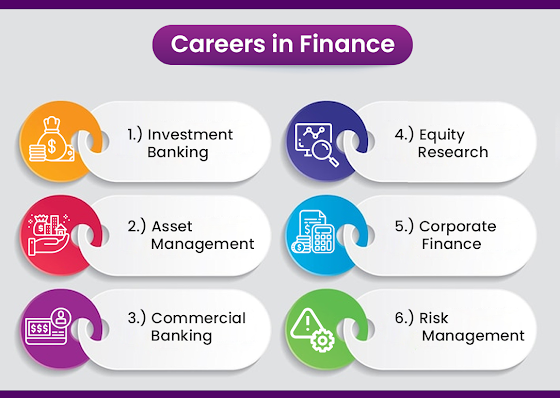What Degree Do You Need to Pursue a Career in Finance and Investment Banking?
If you're considering a career in finance and investment banking, one of the first questions you may ask is what degree you need to
get started. The finance industry is highly competitive, and having the right educational
background can give you a significant advantage. In this article, we'll explore
the different degree options available and how they can prepare you for a
successful career in finance and investment banking.
Bachelor’s degrees in finance
A Bachelor's degree in finance is one of the most common starting points for a career in finance and investment banking. This degree program typically takes four years to complete and provides students with a solid foundation in finance theory, financial accounting, economics, and business principles. Some of the courses you can expect to take in a Bachelor's degree program in finance include:
- · Financial Management
- · Investments
- · Corporate Finance
- · Financial Markets and Institutions
- · Financial Accounting
A Bachelor's degree in finance can provide you with the
fundamental knowledge and skills you need to get started in the finance
industry. However, keep in mind that the competition for jobs in finance and
investment banking is intense, and a Bachelor's degree may not be enough to
land you a top job.
- · Financial Statement Analysis
- · Investment Analysis and Portfolio Management
- · Financial Modeling
- · Derivatives
- · Risk Management
A Master's degree in finance can be especially beneficial if
you're looking to specialize in a particular area of finance, such as
investment banking or asset management. Many top finance and investment banking
firms prefer candidates with a Master's degree in finance, so pursuing this
degree can significantly increase your job prospects.
- · Financial Management
- · Corporate Finance
- · Investments
- · Financial Markets and Institutions
- · Entrepreneurship
An MBA in finance can be an excellent choice if you're
interested in pursuing a leadership role in the finance industry. Many top
finance and investment banking firms prefer candidates with an MBA in finance
for high-level positions such as Chief Financial Officer (CFO) or Vice
President of Finance.
- · Chartered Financial Analyst (CFA)
- · Certified Financial Planner (CFP)
- · Financial Risk Manager (FRM)
- · Certified Public Accountant (CPA)
Obtaining a certification in finance can demonstrate your expertise and commitment to the industry, making you a more attractive candidate to potential employers.
Conclusion

Comments
Post a Comment